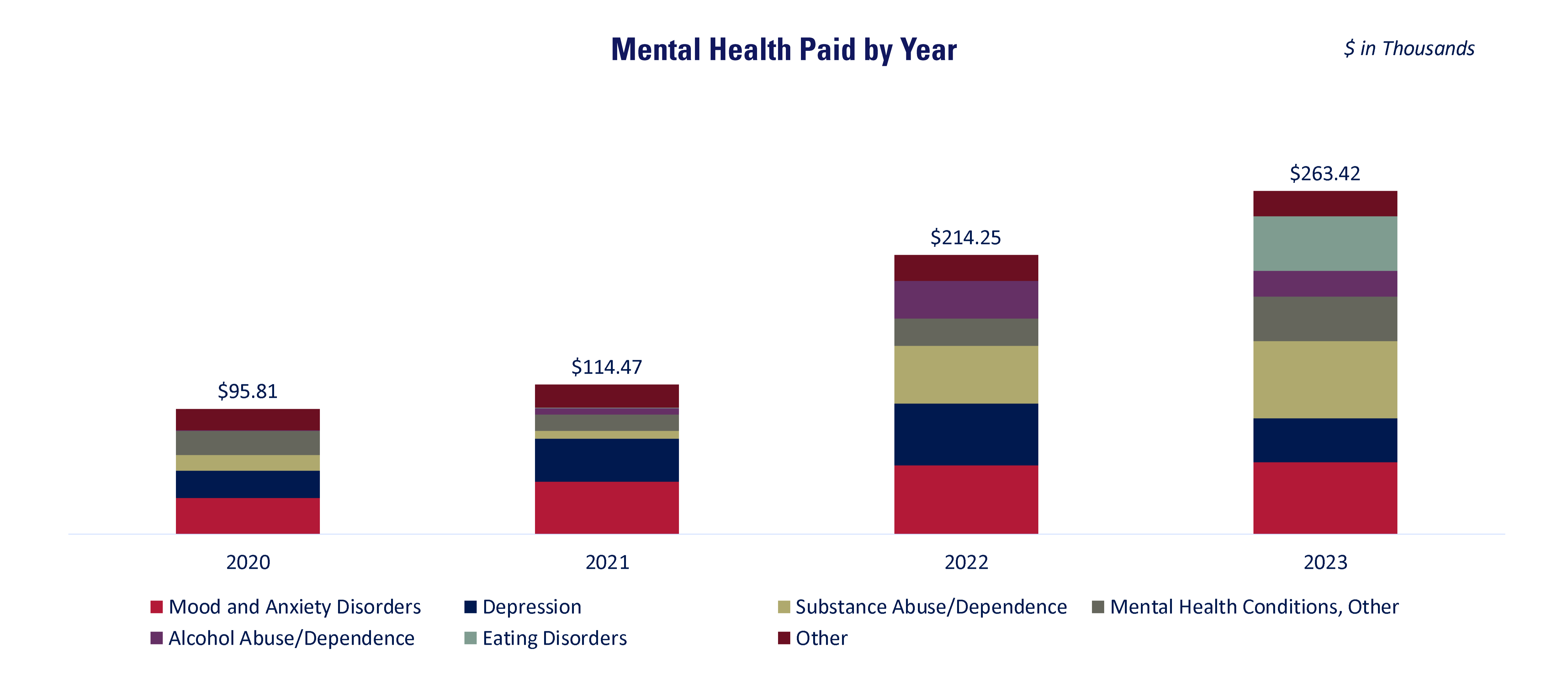Mental health has emerged as a critical concern in society, with its significance amplified during the challenges of the Covid-19 pandemic. Contrary to many other medical categories, mental health claims increased in 2020 and has been on a steady rise, demonstrating its enduring importance. This upward trajectory is expected to persist, underscoring the need for proactive strategies to address mental health issues, particularly in the workplace.
Understanding the complex landscape of mental health is essential for employers seeking to support their employees and their families effectively. Mental health encompasses a wide range of conditions, including depression, anxiety, developmental disorders, alcohol and substance abuse, eating disorders, and many others. Each of these conditions presents unique challenges and requires tailored strategies.
However, relying solely on aggregate reporting can obscure the specific needs of a population. When mental health data is viewed in aggregate, it fails to provide insights into the trends within the population. For instance, while overall mental health claims may increase, the underlying reasons could vary significantly from year to year. One year, the rise in mental health issues might be driven by depression, while the next year, it could be attributed to eating disorders.
Moreover, aggregate reporting overlooks demographic nuances that are crucial for strategic planning. Mental health needs may not only stem from employees themselves but also from their spouses and dependents. Ignoring this fact means missing out on potentially addressing the needs of a significant portion of the population.
This is where analytics becomes indispensable. By harnessing the power of data analytics, employers can gain granular insights into population needs, demographics, and emerging trends. Analytics allows for the identification of specific mental health challenges within the population, enabling employers to tailor their strategies accordingly.
With the help of analytics, employers can ensure that their mental health strategies are both comprehensive and specific. By understanding the unique needs of their employees, spouses, and dependents, they can make informed decisions that have the greatest positive impact on member well-being and overall organizational health.
In conclusion, as mental health continues to be a pressing issue in society, employers must adopt data-driven approaches to address it effectively in the workplace. By leveraging analytics, employers can develop tailored mental health strategies that cater to the diverse needs of their workforce, ultimately fostering a healthier and more productive work environment for all.
Authored by Michael Freas, Data Analytics Leader at Henderson Brothers
Please note that the information contained in this posting is designed to provide general awareness in regard to the subject matter covered. It is not provided as legal, medical, or tax advice, nor is it intended to address all concerns in your workplace or for public health. No representation is made as to the sufficiency for your specific company’s needs. This post should be reviewed by your legal counsel or tax consultant before use.





